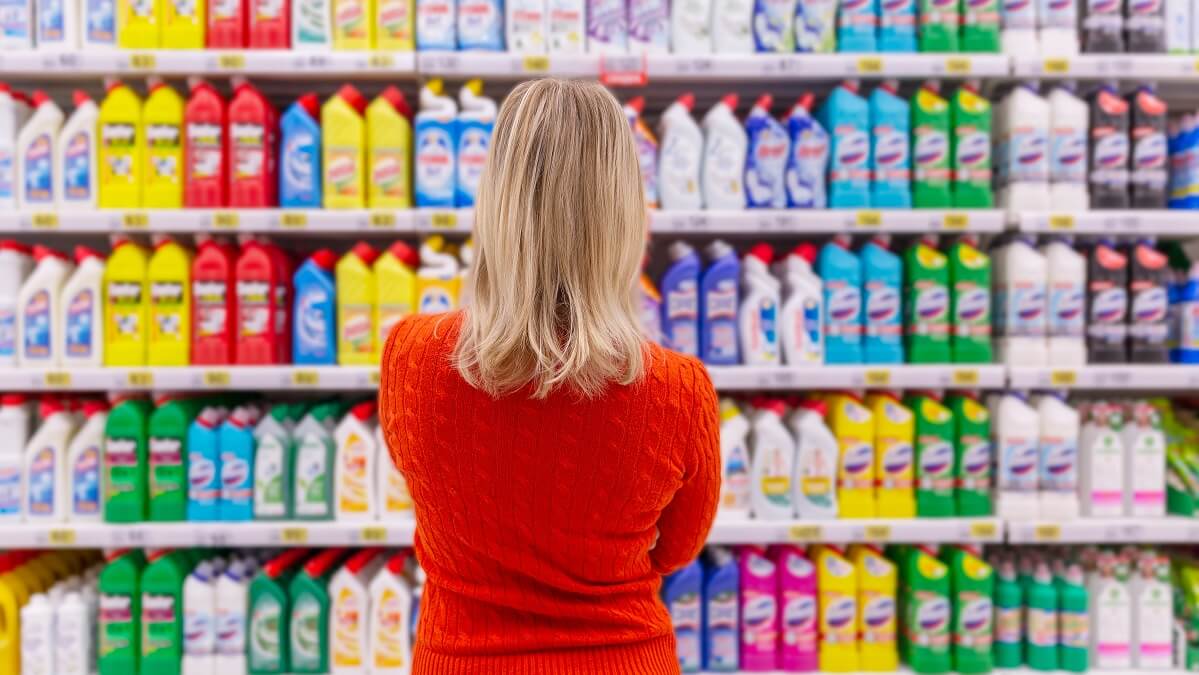A document leaked to a leading newspaper has uncovered a dirty secret about Australians – we’re spending less on cleaning products.
The data reveals that Coles customers are spending 33.3 per cent less than 12 months ago on some cleaning categories. Those categories include bath soap and body wash. Measured by volume, the drop is even greater, at 38.5 per cent.
Is this an indication that we as a nation are becoming unclean? While that’s a possibility, it’s more likely simply part of a broader trend of spending less. Such has been the impact of COVID, inflation and rising interest rates, many Australians have become adept at saving money.
‘Back in my day …‘
Remember the advice about saving money in the good old days? Most Australians over 50 didn’t have to worry about finding ways to spend less. That was for the younger generation to do.
Those young whippersnappers who wanted to save for a house deposit needed to cut back on smashed avocado on toast. So said luxury property developer Tim Gurner in an interview on Channel 9’s current affairs show, 60 Minutes.
Mr Gurner’s comments struck a nerve with many. “Just cut back on your avo on toast” became a worldwide euphemism for advice to start spending less.
The furore caused by Mr Gurner’s comments seems an age ago now. In fact, he made them in 2017, a mere six years ago. Now, thanks to the cost-of-living crisis, it’s most of us, not just aspiring home-owners, looking for ways to save.
And, as recently highlighted on this website, making small cuts here and there can lead to large savings quite quickly.
The science of spending less
Identifying where to make the cuts is key. Assuming you’ve already cut back on the smashed avo on toast, you’ll likely look closer to home. And it’s there that you might find a number of ways to spend less.
The body wash mentioned in the Coles report, which was produced for its executives and suppliers, provides a good example. For many over the past few decades, body wash has become a regular purchase. Perhaps even to the point where, for some, it became viewed as a necessity.
Assuming you also have ordinary soap, it is, of course, not a necessity. Basically, if you can’t afford food, you’ll face serious health consequences. If you can’t pay your mortgage, you might lose your house. But if you haven’t got enough money to buy body wash you will … simply not have any body wash. You won’t lose your house or your life.
The ‘essential’ difference
“Consumers are cutting back on weekly essentials like kitchen cleaners, body wash, sponges, wipes and bathroom disinfectants.” That is the opening line of the Australian’s article on the Coles report.
As already pointed out, body wash is not genuinely essential, but what of the other listed items? Kitchen cleaners? No-one would argue that hygiene around food is essential, but are ‘kitchen cleaners’ necessary to achieve that? The efficacy of such products is more the domain of CHOICE, but one could mount an argument that they’re not.
Classing items such as sponges and wipes as essential is reasonable, but perhaps consumers are now simply making them last longer. Grabbing a new wipe from the pack at the first sign of wear can easily become a habit. But if life calls for spending less, some habits have to change. When faced with having to choose between new wipes and bread, you can make wipes last a little longer.
These are choices many Australians are now having to make, and the Coles report suggests cleaning products are the ‘victims’.
Adding value
Coles has responded to the declining sales of these products by introducing a ‘Big Pack Value range’. That could help them recover ground, but it won’t be front of mind for most consumers hell-bent on spending less.
If the ‘Big Pack Value’ item is seen as a necessity and saves money, Coles and the customer will win. If it’s deemed non-essential, Coles’ profits could drop. On the other hand, that non-purchase might just help another Aussie household through the cost-of-living crisis.
Have you been forced to cut back on grocery spending? What seemingly essential items have you found you can manage without? Let us know in the comments section below.
Also read: Five tips that will increase your emergency savings pot
Disclaimer: All content on YourLifeChoices website is of a general nature and has been prepared without taking into account your objectives, financial situation or needs. It has been prepared with due care but no guarantees are provided for the ongoing accuracy or relevance. Before making a decision based on this information, you should consider its appropriateness in regard to your own circumstances. You should seek professional advice from a financial planner, lawyer or tax agent in relation to any aspects that affect your financial and legal circumstances.


One reason for the cut back could be that shoppers are going to Aldi instead. Their prices for cleaning products across the board are way less than Coles.
Where is the obvious answer to explore in your article. Sure the cost-of-living is biting – but then so are environmental matters – why not explore the fact in this article that there are so many more alternatives for cleaning with natural products from the pantry and kitchen now – without the chemicals. I know some of us are in a quiet rebellion – vinegar, lemons – bicarbonate of soda. So many uses! So much cheaper. So much more environmentally friendly.
I agree with Alan Potter but also could it just be that customers realised they were using wasteful amounts of cleaning products before Covid. A significant part of cleaning product advertising is dishonestly creating guilt. Maybe besides lower expenditure a long term benefit will be fewer kids with allergies?
Reminds me of an old mate I used to know. He showered once in the summer and not so regularly in the winter.